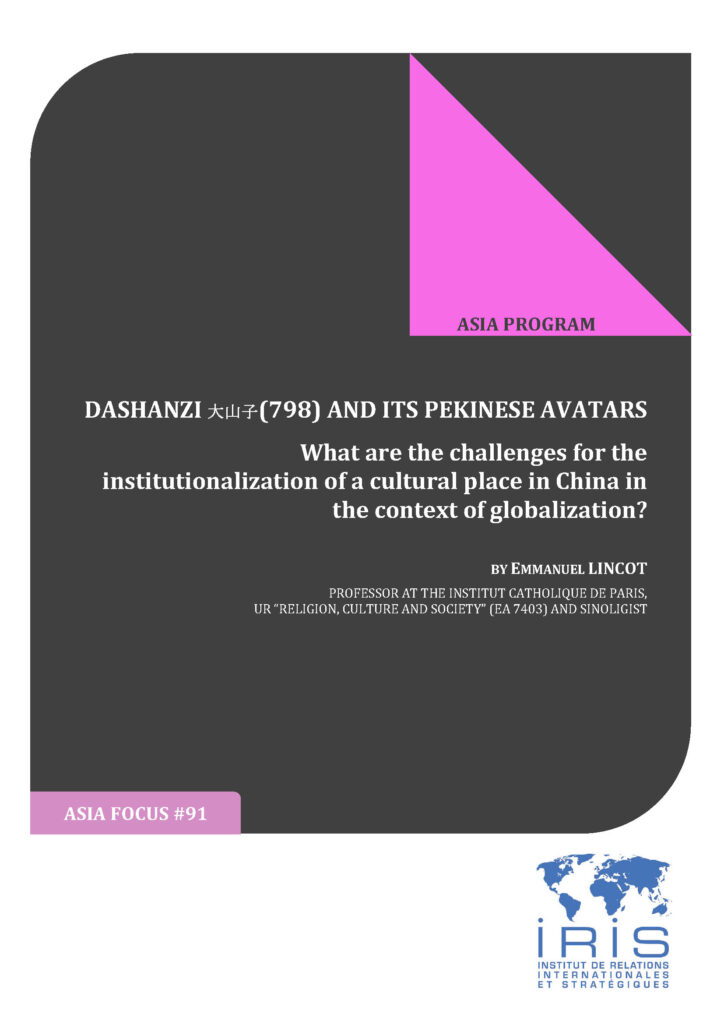Notes / Asia Focus
8 novembre 2018
What Are the Challenges for the Institutionalization of a Cultural Place in China in the Context of Globalization?

The integration of China to the WTO, in 2001, has deeply modified the cultural scene and its economy. In the context of a reflection on the development of a « soft power » (软 实力 – ruan shili) – as a power of influence as Joseph S. Nye defines it – with Chinese characteristics, culture has become a priority area for the leaders of Beijing. It is not only perceived as a possible source of job creation but as a « security issue » (国家文化安全 – guojia wenhua anquan). Globalization forces, cultural institutions become industries. It is not only their name that is brought to change but also a whole reflection that bears on the risks involved in the opening of China to global capitalism from an identity point of view. Therefore, « joining the world » (与国际 接轨 – yu guoji jiegui), according to the formula, cannot undermine the sovereignty of China in the cultural field? This dilemma is at the very heart of the diplomacy this country is considering in its competition with the United States but also with Korea or Japan, whose image and power of seduction seem to have a much bigger impact in the world, Western at least…

